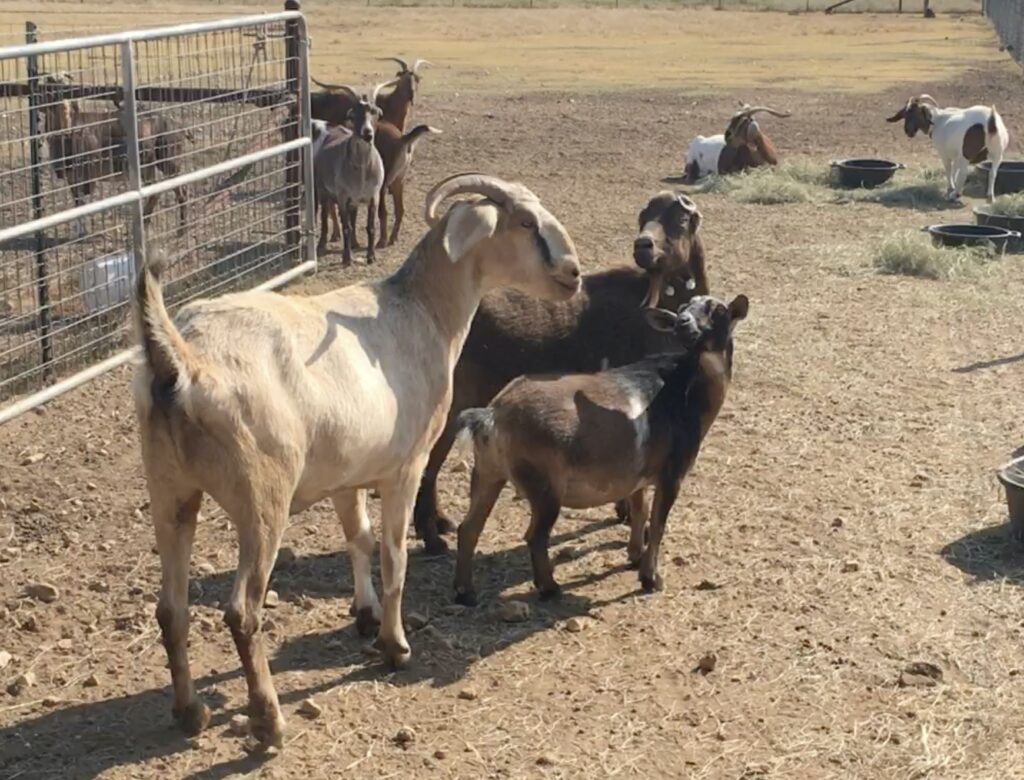Rufus, one of our precious wethers, just came home from the vet after spending an entire week recovering from a bout of acidosis. Rumen acidosis happens in goats if their pH becomes too acidic. Goats commonly become acidotic if they have too much highly fermentable carbohydrates in their diet. We are therefore cutting back on grain feeds and adding more hay to their diet. The condition is especially prevalent in hot summer months and therefore the side-effect of dehydration can be dangerous.
We noticed that Rufus was lethargic, breathing heavily and not urinating much. At first, we thought the worst and assumed he may have urinary calculi (build-up of calcium deposits in urethra). After the vet conferred with a few ruminant experts at Texas A&M our vet treated Rufus medically after taking some blood tests. This was in favor of a more radical approach — assuming he even had urinary calculi — of catheterizing him. Ultrasound and X-rays did not show any urinary blockage, so we were greatly relieved. Rumen acidosis causes pain in addition to dehydration, so the vet gave Rufus pain meds and electrolytes. These were administered after blood work and other tests proved a high acid level and dehydration. Thankfully, after his pH balance came back into normal ranges, he was eating, drinking and eliminating normally in a few days. The vet kept Rufus for close observation until they felt he had fully stabilized.
We were delighted to be able to bring him home. He loaded into the livestock trailer without any trouble. Once he disembarked from the trailer, you can hear him call out a little to his buddies as soon as he saw them. Although he was a little disoriented, once we got him through the gate and into his pasture, the others greeted him and he perked up. Interested in sponsoring Rufus? He and his mother Maria and his sister Mandy came to LGRS after continually breaking down a fence and raiding a neighbor’s garden. Apparently they had been causing enough trouble for the neighbor to threaten them so the owners brought them to the sanctuary in 2001.
The one-week vet visit, lab tests, ultrasounds, x-rays, mediation and boarding were expensive – over $800. Any small donation to the sanctuary will help to defray these expenses. Rufus will thank you and so will his family!

